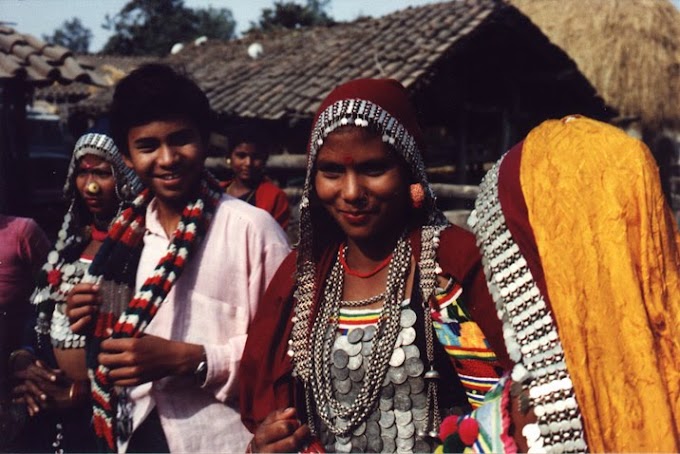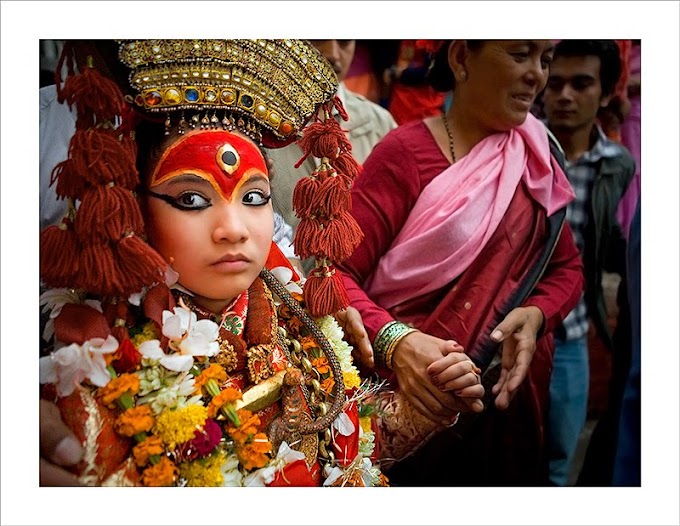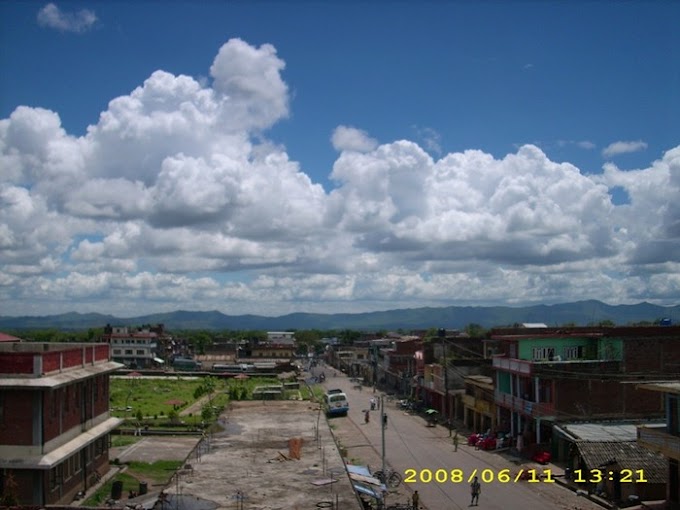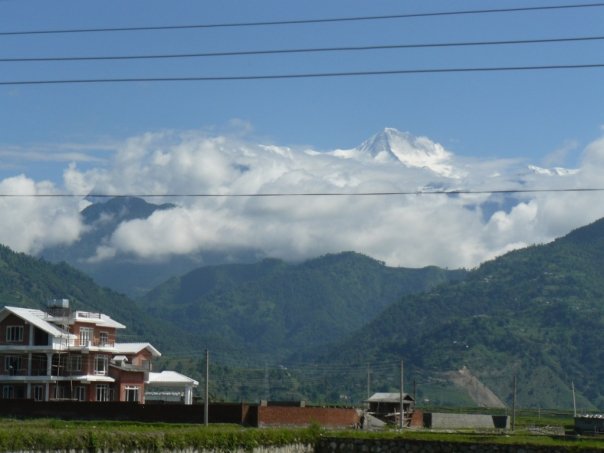Location and Climate
Dhulikhel is the smallest municipality of Nepal in terms of population. It is situated only 30 Km east of Kathmandu, the capital of Nepal on the Araniko Highway in the lap of Greenwood and at an elevation of 1,550 meter above the mean sea level and along the ridge that separates the valley of Banepa andPanchkhal. It looks as if Dhulikhel is busy in conversation with the Himalayan range on the north with a beautiful smile. This might be the reason why many people call this places as the 'Queen of the hills'.
Brief History
Dhulikhel has for many centuries been an important trading center on the ancient commercial route linking Nepal to Tibet. Since time immemorial, people of Nepa traveled to Tibet to bring home salt and gold. Still people talk gold mines at Lhasha, the capital of then Tibet. Likewise, the Tibetans every year with their flocks of sheep entered Nepal during Dashain, the greatest Hindu festival. They purchased chilies and other daily necessities in Nepal and returned to their homeland. The opening of the Araniko Highway, built with the grant assistance of thegovernment of China in 1965 changed the life of Dhulikhel dramatically. First, the town became accessible to foreign tourists. Second, the people of Dhulikhel now found it easy to travel daily by bus, car and motorbike to Banepa and Kathmandu for shopping, education and employment. Recently, though the town has transformed itself into a tourists' paradise with an array of all modern amenities. 'Dhulikhel' is well noted for its rich cultural antiquities. The local legend has it that the place derived its name from Newari word 'Dhunkyo': 'Dhun means 'Tiger' and 'Khyo' means 'Playing Area',. - thus implying an ancient forest, where tigers used to play. Naturally enough till today, Dhulikhel remains a unique repository of Newar civilization - replete with numerous art and architectural monuments with a distinct local identity.
The Old Town
The oldest area of the town, the southern end, is an assembly of fine old Newari houses, often occupied by 20 or more members of the local extended families. They may not all have glazed windows, hot water or modern furniture, but they have dignity and a friendly atmosphere. Their most valuable assets are the beautiful carved windows and doors, fine examples of traditional Newari craftsmanship.
As one wonders down the traffic free narrow streets, one passes through a medieval city inhabited for at least five centuries, The plan of the city based on ancient Hindu planning doctrine with the position, shape, scale and dominance between buildings, temples, and public squares all having their own meaning and harmony. The stone paved lands and worn brick buildings, and the open yards surrounded by the traditional houses with flower pots, old pagoda-style temples with glittering Gajurs and typical mountain lifestyle of the people speak silently of the rich history and the cultural heritage of the people.
There are originally developed compact settlements around Dhulikhel, These settlements in one hand conserve heat in the cold valley, and at the same time maximize land for agricultural use. One of such old settlements is Shreekhandapur, which lies 2Kms west of the core city near the Kathmandu University and is also a century's old Newari settlement. The settlement is protected by Swet Bhairav (an incarnation of Lord Shiva) and Narayan (Vishnu) deities.
Temples
In the center of the old town is the Narayan Templewith its yellow metal roofs. It is dedicated to Lord Krishna, whose birthday is joyfully celebrated here in August. Alongside is the Harisiddhi Temple whose god responds to the worshiper problem and sees their good and wrong doings. Both the temple are adorned with pofuse woodcarving and fronted by two Garudas in quite different attitude. Bhagwati Temple situated at the top of the western part of the town is considered as one of the best place to see around Dhulikhel and also to enjoy the best mountain views.
The Gaukhureshor Mahadev Temple is about 20 minutes walk to the east of the town near Tundikhel Recreational Park and is located in a peaceful and quite environment. It is probably the most scenic religious center, beside a small river surrounded by trees.
Further up hill, one reaches, within half an hour trek, theBhagwati (Kali) Temple. This is a beautiful pagoda that one can see on the skyline as one drives into Dhulikhel.
While going to Bhagwati (Kali) Temple, again about 100 m form the Tundikhel Recreational Park lies Buddha Vihar, a Buddhist Monastery and lush green 'Dipendra Greenway Park', where cool breeze whispers an ambience of eternal peace and tranquility.
About 9Kms from Dhulikhel on the way to Palanchowk Bhagwatilies a holy temple of Sankat Mochat Hanuman, the monkey god, which represents symbol of courage and strength practiced through true celibacy. There are other numerous temples and few Buddhist Stupas in the town.
Festivals
People celebrate different festivals either they are form Hindu community or Buddhist community. The major festivals are Dashain, Tihar, Nava Durha Jatra,Maagh Sakranti, Bisket Jatra, Hile Jatra(Ghintamuni Jatra), Gai Jatra, Lakhe Dance, Krishna Astami Jatra, Hari Siddhi Trishakti Jatra, Bhagwati Jatra etc.
Modern Dhulikhel
Its long history and natural beauty has not stopped Dhulikhel from moving rapidly into the modern technologies age. The town is now in the forefront of Nepal's efforts to imrove education, health provision and public services. Dhulikhel Municipality is trying to establish its identity in three important areas:
* Dhulikhel for quality education
* Dhulikhel for better health service, and
* Dhulikhel as a tourist center
As the District Headquarter of Kavre district, Dhulikhel now is equipped with all the modern facilities like electricity, telephone, internet services, drinking water supply etc. The Dhulikhel - Sindhuli - Bardibas road and the Information Technology (IT Park) have further added the flavor in the development of Dhulikhel.











